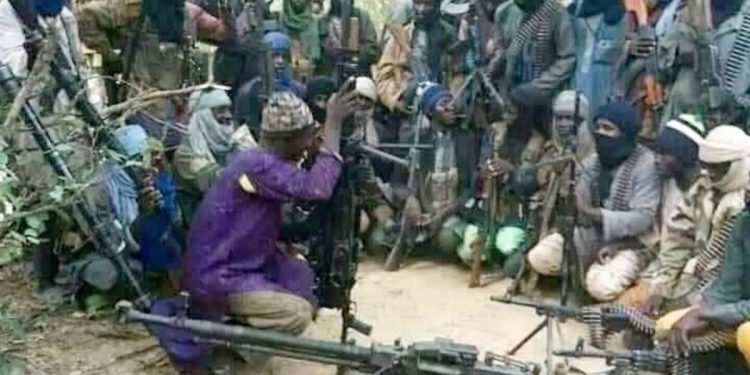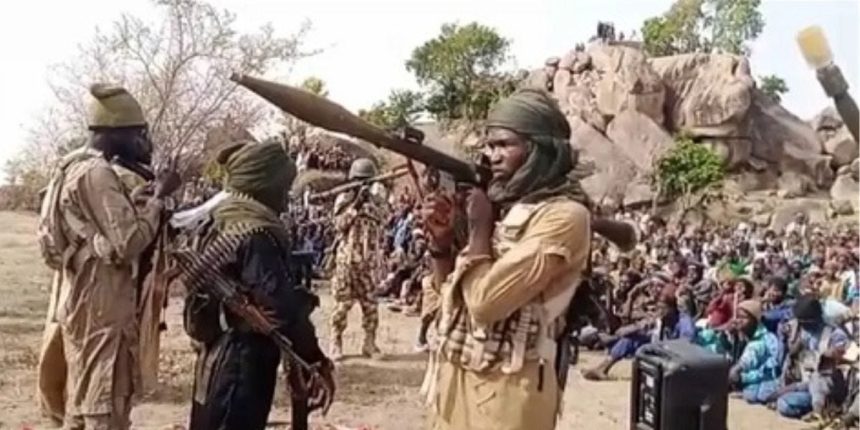Nigeria Faces New Security Threat as Lakurawa Insurgent Group Escalates Attacks in the Northwest
Nigeria’s security challenges have intensified with the emergence of a new Islamist insurgent group, Lakurawa, operating along the nation’s northwest border. Recently, the group carried out a significant assault, killing 15 people in its most high-profile attack to date, sparking concern among residents, officials, and security analysts.
According to the Nigerian military, Lakurawa, a previously lesser-known group linked to the Islamic State, has increased its presence in Nigeria’s Kebbi and Sokoto states, signaling a rising threat.
Lakurawa first appeared in northwest Nigeria in 2018, initially positioning itself as an ally to local communities struggling with violent bandit groups. These armed gangs had terrorized northwest Nigeria with kidnappings, extortion, and violence.
Although Lakurawa was initially welcomed as an ally against these bandits, relations soon deteriorated. Reports from local media indicated that Lakurawa’s initial support came at a cost, as members allegedly began stealing cattle and enforcing strict Islamic codes in local communities. This strict control eventually forced the group to retreat toward border areas in Niger and Mali, though Lakurawa has periodically crossed back into Nigeria.
The group’s return to Nigeria has been attributed, in part, to regional instability. Following the July 2023 military coup in Niger, joint patrols along the Nigeria-Niger border ceased, allowing insurgent groups more freedom to maneuver in border regions.

The Nigerian defense spokesperson, Edward Buba, acknowledged that while Lakurawa was not initially seen as a significant threat, the group has grown more active, capitalizing on the security vacuum left by halted joint patrols.
READ ALSO: IPMAN Secures Direct Product Supply from Dangote Refinery
The potential resurgence of Lakurawa in Nigeria is troubling for several reasons. Nigeria is already grappling with several insurgent and militant groups, including Boko Haram and the Islamic State’s West Africa Province (ISWAP), both of which operate predominantly in the northeast.
Additionally, northwest Nigeria is rife with violent bandit gangs. Analysts warn that the entry of yet another militant faction could stretch Nigeria’s military resources even further and prolong conflict in the region.
Lakurawa’s tactics are typical of many insurgent groups; it combines violent acts with social control to expand influence. James Barnett, a research fellow at the Hudson Institute who has conducted fieldwork in Nigeria’s northwest, noted that the group’s activities suggest larger ambitions.
“The fact that [Lakurawa members] engage in preaching and impose harsh edicts on local communities indicates they are ambitious, potentially thinking big picture about eventually extending their territorial influence to Nigeria,” he explained. Lakurawa’s strategy of engaging with local populations and imposing Islamic law mirrors that of ISWAP and Boko Haram, which have also sought to establish a foothold through a combination of coercion and control.
In response to the rising threat, Nigeria’s military has moved to contain Lakurawa’s influence. The acting Chief of Army Staff, Lieutenant General Olufemi Oluyede, recently visited the affected regions, specifically Sokoto, where he rallied troops and met with community leaders to encourage support in combating the insurgents.
Oluyede emphasized the importance of local cooperation, highlighting that defeating insurgent groups requires both military action and community resilience.

In addition, Nigeria has resumed joint patrols with Niger’s military, signaling renewed collaboration to monitor and secure the porous borders where insurgent groups like Lakurawa often operate. Officials hope these combined efforts will prevent Lakurawa from establishing a permanent foothold and deter its members from returning to rural communities.
The resurgence of Lakurawa in Nigeria underscores the complex security situation in the country’s northwest. As Nigeria continues its fight against Boko Haram, ISWAP, and various bandit gangs, the arrival of another insurgent group could complicate efforts to stabilize the region.
READ ALSO: Pulisic and McKennie Return to U.S. Squad For Concacaf Nations League Quarterfinals Against Jamaica
Security experts note that each additional faction not only drains resources but also creates conditions for alliances between insurgent and criminal groups, posing further risks for Nigeria’s military and local populations.
Despite these challenges, Nigeria’s renewed focus on regional cooperation and community-based initiatives offers a promising path forward. Preventing Lakurawa from entrenching itself in the northwest will be essential to preserving stability in the region and ensuring that local communities can live free from the threat of violence.
As the situation unfolds, Nigeria’s military will continue its efforts to curb the influence of this new threat, aiming to restore order in the northwest and prevent another protracted insurgency.

